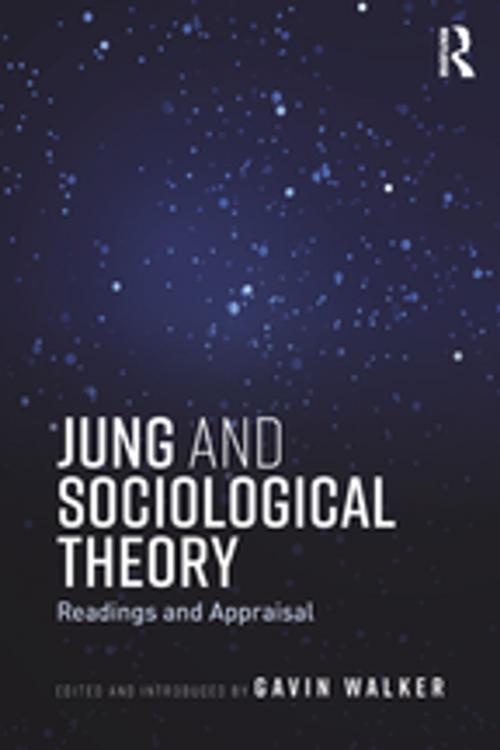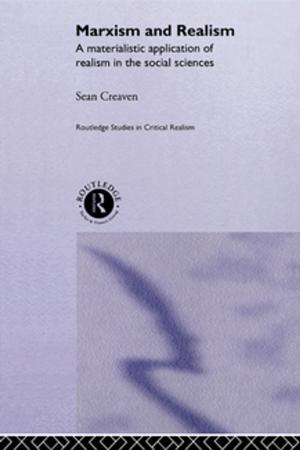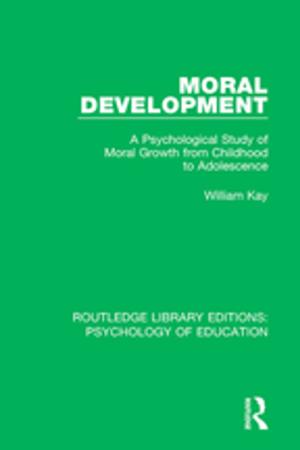Jung and Sociological Theory
Readings and Appraisal
Nonfiction, Health & Well Being, Psychology, Mental Health| Author: | ISBN: | 9781134970292 | |
| Publisher: | Taylor and Francis | Publication: | November 10, 2017 |
| Imprint: | Routledge | Language: | English |
| Author: | |
| ISBN: | 9781134970292 |
| Publisher: | Taylor and Francis |
| Publication: | November 10, 2017 |
| Imprint: | Routledge |
| Language: | English |
Carl Jung has always lain at the edge of sociology's consciousness, despite the existence of a long-established Freudian tradition. Yet, over the years, a small number of sociological writers have considered Jung; one or two Jungian writers have considered sociology. The range of perspectives is quite wide: Durkheim, Weber, Marx, Levi-Strauss, feminism, mass society, postmodernism. These scattered writings, however, have had little cumulative impact and inspired little debate. The authors seem often not to have known of each other, while the sociological mainstream has remained unmoved or unaware.
This is the situation that this book seeks to change. Jung and Sociological Theory brings together a selection of articles and excerpts in a single volume, together with some writings from anthropology, and seeks to begin the task of critical evaluation. Presented in three parts, the book covers anthropology, sociology and an appraisal of Jung and sociological theory. Gavin Walker explores the relationship between Jung and sociology, asking what the writers included here wanted from Jung, how we should locate Jung on the sociological landscape, and how this might link to anthropology. In conclusion he suggests that sociology’s problem with Jung is less that he is difficult to place, than that he compels sociology to face some of its own inconsistencies and evasions.
Jung and Sociological Theory will be of interest to all academics and students working in the fields of Jungian studies, analytical psychology and psychoanalysis, sociology, anthropology, feminism, comparative religion and the history of ideas.
Carl Jung has always lain at the edge of sociology's consciousness, despite the existence of a long-established Freudian tradition. Yet, over the years, a small number of sociological writers have considered Jung; one or two Jungian writers have considered sociology. The range of perspectives is quite wide: Durkheim, Weber, Marx, Levi-Strauss, feminism, mass society, postmodernism. These scattered writings, however, have had little cumulative impact and inspired little debate. The authors seem often not to have known of each other, while the sociological mainstream has remained unmoved or unaware.
This is the situation that this book seeks to change. Jung and Sociological Theory brings together a selection of articles and excerpts in a single volume, together with some writings from anthropology, and seeks to begin the task of critical evaluation. Presented in three parts, the book covers anthropology, sociology and an appraisal of Jung and sociological theory. Gavin Walker explores the relationship between Jung and sociology, asking what the writers included here wanted from Jung, how we should locate Jung on the sociological landscape, and how this might link to anthropology. In conclusion he suggests that sociology’s problem with Jung is less that he is difficult to place, than that he compels sociology to face some of its own inconsistencies and evasions.
Jung and Sociological Theory will be of interest to all academics and students working in the fields of Jungian studies, analytical psychology and psychoanalysis, sociology, anthropology, feminism, comparative religion and the history of ideas.















